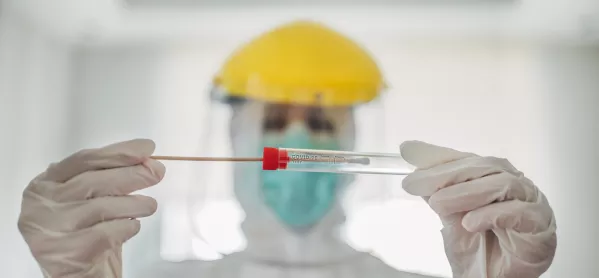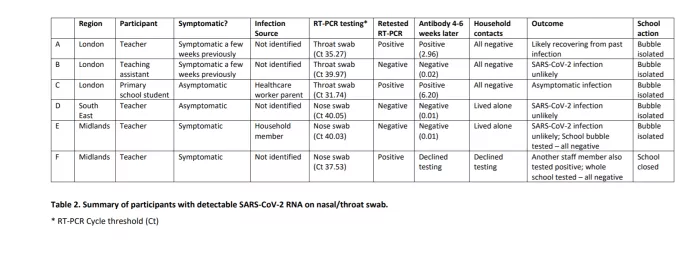A study into Covid transmission in preschools and primary schools during the second half of the summer term has found “no evidence” of increased risk of infection in staff or students.
The research, conducted by Public Health England (PHE), identified only six positive cases over the course of the surveillance - three of which tested negative on re-analysis.
The research also found “no association” between positive antibody tests and school attendance during the lockdown.
Related: Teachers told they have no increased Covid death risk
SAGE: Experts warn of school reopening ‘super-spreader’ risk
Coronavirus: DfE reveals ‘worst-case scenario’ plan for Covid spikes
Overall, there were “very low rates” of coronavirus infection or transmission in English schools during the second half of the summer term, the study found.
This equated to an infection rate of 3.9 per 100,000 students per week and 11.3 per 100,000 staff per week, after adjusting for missing staff or pupils.
However, the report said similar studies were needed to establish transmission rates in secondary schools.
Of the 12,026 participating staff and students from across 131 schools, just six tested positive when swabbed - one student, and five staff members.
Of these, three staff members later tested negative, following re-analysis.
Of the remaining confirmed infections, the single asymptomatic student was a child of a healthcare worker who had been symptomatic.
And, where a positive case was identified, further testing found “no additional cases” in the household, class bubble or wider education setting.
“We successfully recruited large numbers of students and staff across a wide range of educational settings and found very low swab positivity rates,” the PHE report said.
“Three participants with an initial positive swab subsequently tested negative with no evidence of antibody development 4-6 weeks later, highlighting the risk of false positivity associated with mass testing during periods of low community prevalence, even with the most specific assays.
“Additionally, while weekly testing was reassuring for the participating schools, both the child of a healthcare worker and the two symptomatic teachers could potentially have been picked up through effective contact tracing and community testing, respectively.
“Reassuringly, we found no evidence of secondary transmission to household or schools contacts of the three index cases.”
The study also found “no association between antibody positivity and either school attendance or exposure to educational settings during the lockdown period”.
“The level of staff exposure to students was also not associated with antibody positivity,” the report added.
This was more likely to be associated with “non-white ethnicity, being symptomatic with Covid-19 like symptoms and having a healthcare worker in the household”, it said.
The report stressed an “important limitation” of the research was it was carried out “after easing of lockdown”.
“Also, only a few school years were open and extensive social distancing and infection control measures were in place, with small class sizes clustered into defined bubbles and many children attending school for only some days every week,” it said.





